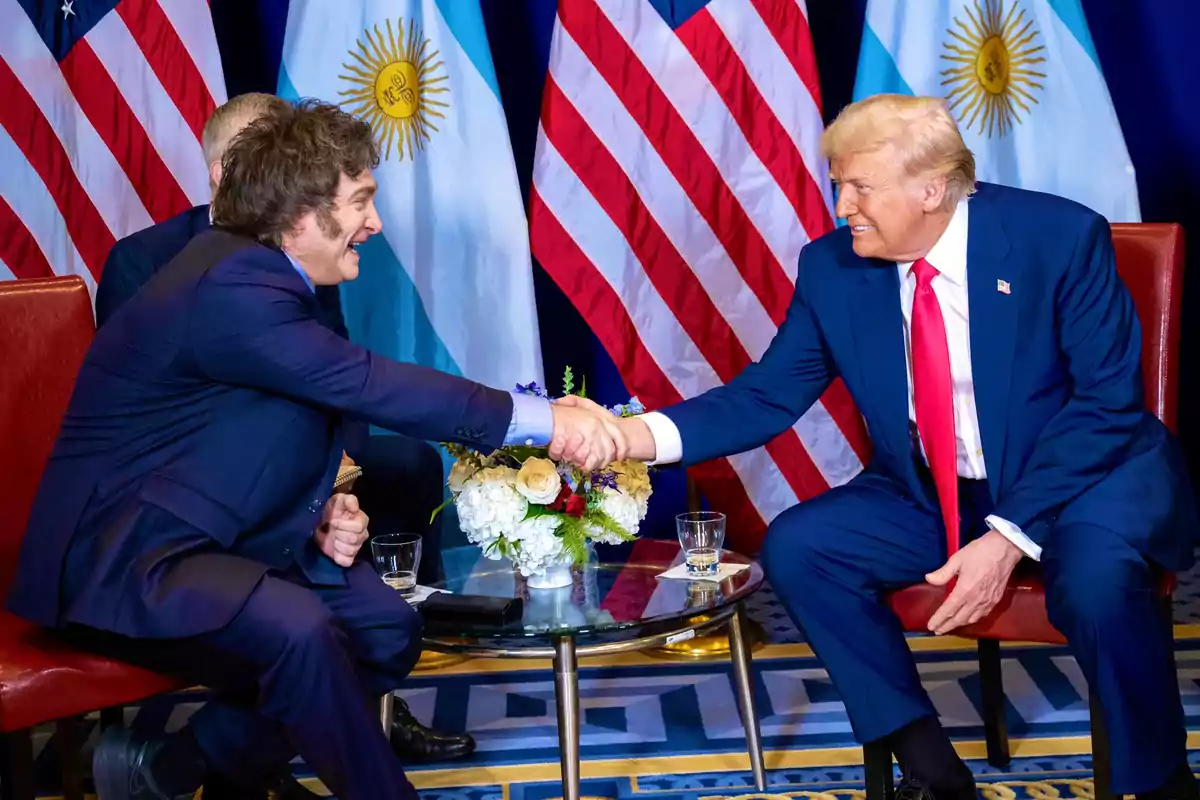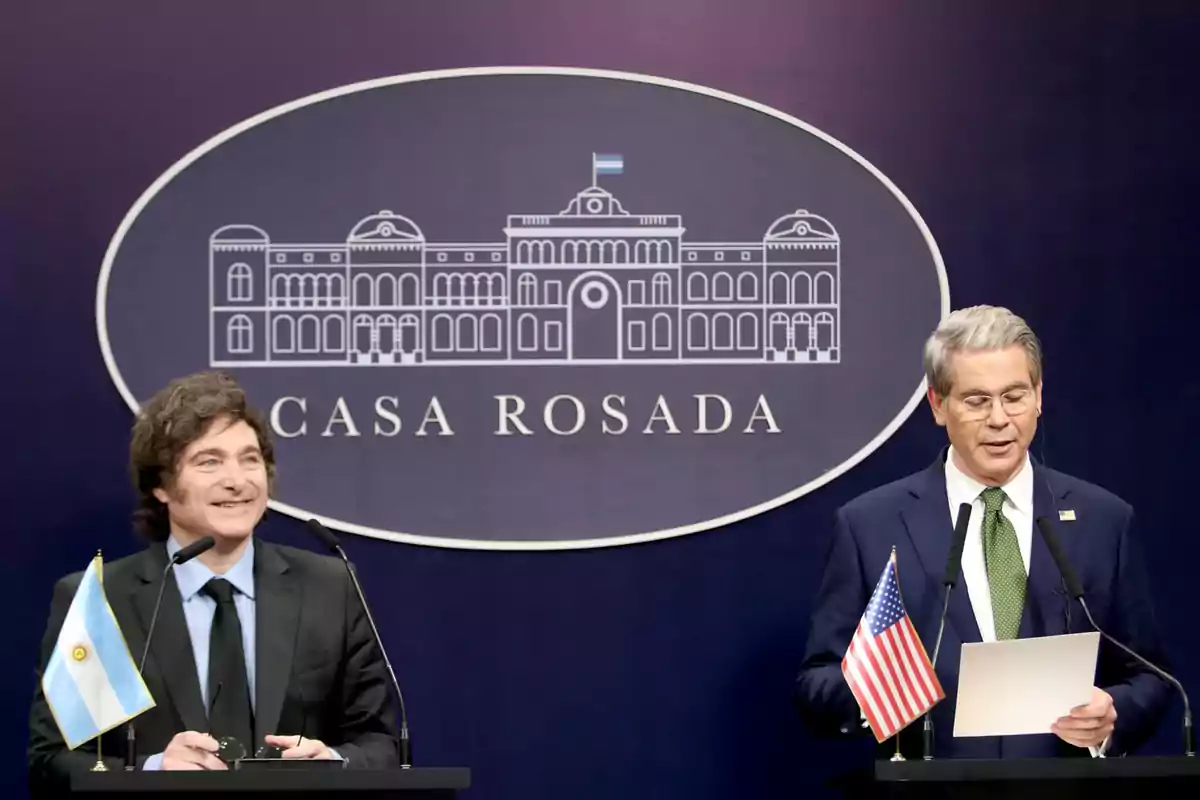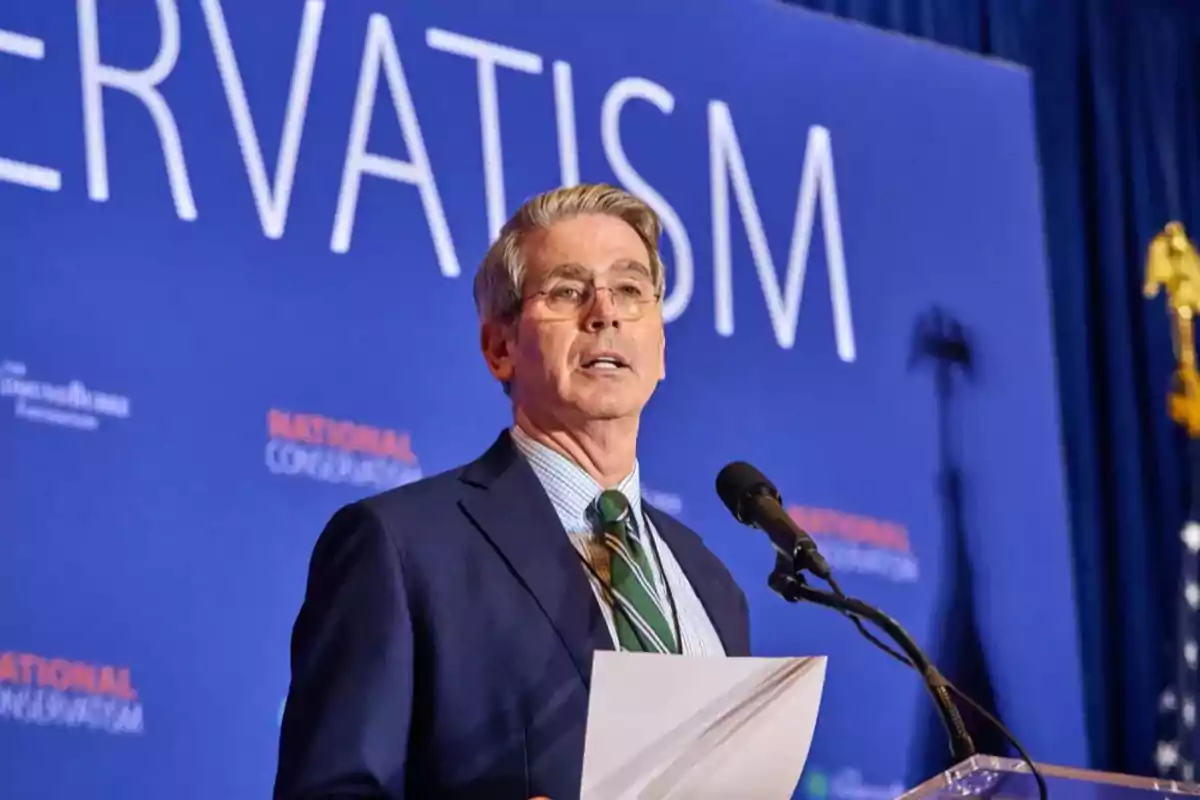
Milei and Trump consolidate an alliance with negotiations for credit and a trade agreement
Washington seeks to strengthen the country's economic stability and consolidate the strategic alliance between Milei and Trump
The Argentine government is moving forward in negotiations with the United States Treasury to obtain financial support amid a context of exchange rate volatility and limited reserves.
Sources close to the negotiations confirmed that "talks are advanced", although the amount of the potential loan is still under discussion. The possibility of assistance from the world's leading power represents a strategic backing at a time when the local economy is facing tensions typical of the pre-election period and a precautionary demand for dollars that puts pressure on the Central Bank.
The progress of these talks is taking place in the context of total secrecy in Washington and with the direct involvement of the U.S. Treasury Secretary, Scott Bessent.

The official not only showed willingness to open a line of credit to stabilize Argentina's financial front, but is also promoting a bilateral understanding in trade matters. According to official sources, an agreement is being negotiated that would include more than one hundred tariff positions with rates ranging from 0 to 10%, the lowest range of the scale applied by the United States.
Meanwhile, private analysts warn about the Central Bank's limited capacity to accumulate international reserves. In a scenario marked by precautionary dollarization typical of election periods, the exchange rate has experienced strong fluctuations in recent weeks, eased in recent days at the cost of high interest rates.
A relevant aspect is that the financial support initiative was not requested by the Argentine Ministry of Economy, but came directly from Bessent. The official had already anticipated at the beginning of the year, during a meeting organized by J.P. Morgan, Washington's willingness to assist the country in the event of an "external shock". Back then, he stated: "I think that, if they continue with what they're doing, if they stay the course, I'd even be willing to use the Exchange Stabilization Fund (ESF) to smooth their adjustment, if necessary, if they stay the course".
The U.S. offer also reflects the political alignment between President Javier Milei and his U.S. counterpart, Donald Trump. Both leaders share an ideological affinity and have consolidated a relationship that contrasts with the distant relationshipthat the White House keeps with the Brazilian dictator, Luiz Inácio Lula da Silva.

Bessent himself visited Buenos Aires in April, in one of his first international trips, and on that occasion publicly expressed his expectation that Argentina could cancel the current swap with China. For the Trump administration, the growing influence of the Asian giant in Latin America is a cause for concern.
When asked during that trip about the agreement between the Argentine Central Bank and the People's Bank of China, he explained: "They have an $18 billion credit swap in yuan. Argentina, under the previous Peronist government, obtained $5 billion, and that amount will remain outstanding. The Chinese made a great effort after the announcement, or in conjunction with the IMF's, so it will be extended for a year. I think that, as this administration keeps its tough economic policy, they should eventually have enough foreign currency inflows to be able to pay it off".
The open negotiations in Washington are interpreted as a sign of Argentina's geopolitical alignment under the current administration, which is committed to deepening cooperation with the United States and reducing its dependence on financing from China.
More posts: